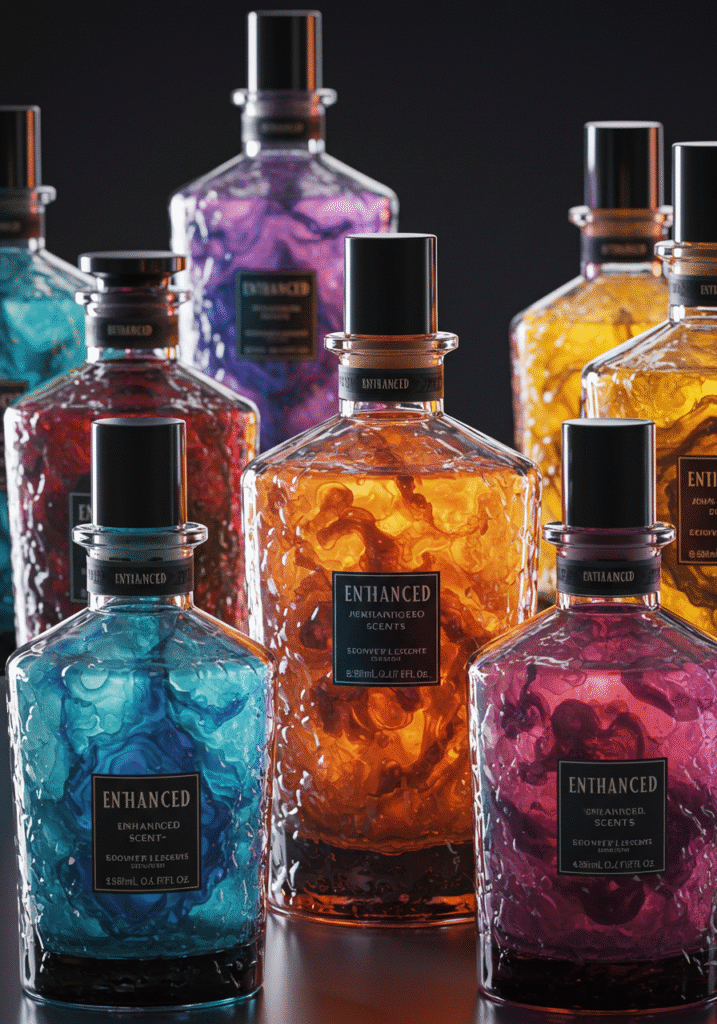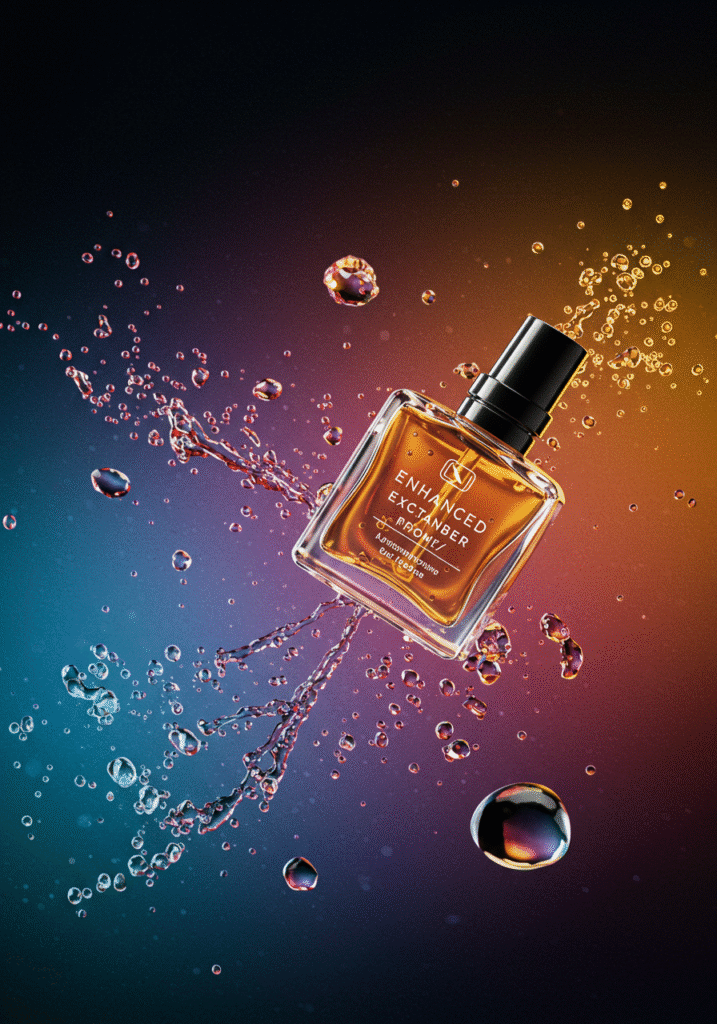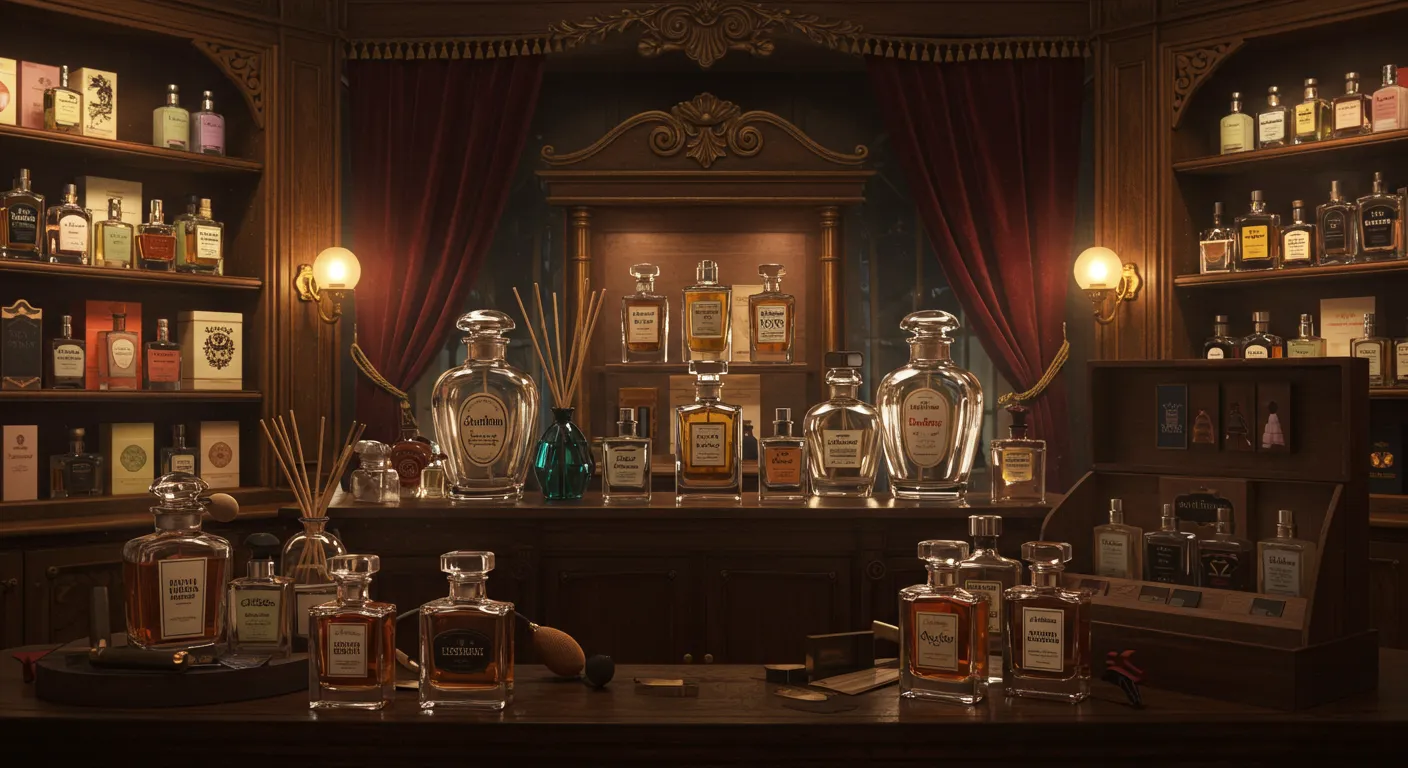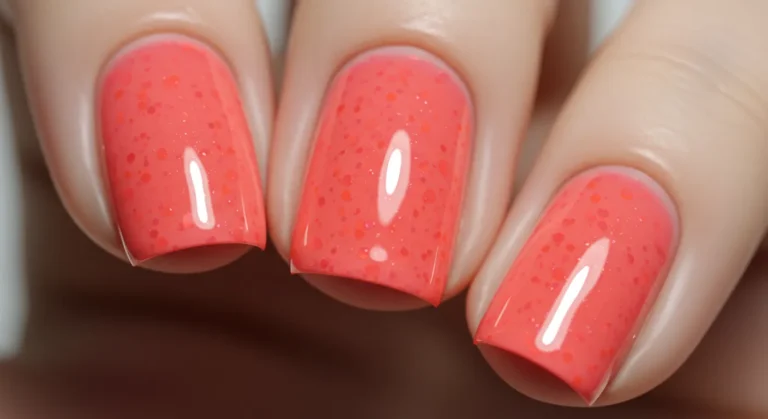best Enhanced Scents The Future of Fragrances in 2025
Introduction
Fragrance has long been a cornerstone of human identity, ritual, and expression. From ancient incense to modern eau de parfums, scent plays an unspoken role in how we present ourselves and perceive others. But today, with the rise of biotechnology, artificial intelligence, and deeper olfactory research, we’re witnessing the emergence of a transformative category enhanced scents.
So, what exactly are enhanced scents? In the simplest terms, they are fragrances that go beyond traditional perfumery. Enhanced scents are designed with augmented elements—using tech-driven innovation, sustainable compounds, and adaptive chemistry—to intensify, extend, and personalize the sensory experience. These are not just perfumes; they’re multi-layered scent experiences engineered to interact with your mood, body chemistry, and even environment.
What separates enhanced scents from classic perfumes is the infusion of technology. For instance, some formulas incorporate microencapsulation to control how a scent is released over time. Others are made using AI-suggested molecular compositions that were previously undiscovered by human perfumers. Many are also infused with mood-altering ingredients like adaptogens or pheromone-like enhancers, creating not just a smell—but a state of being.

Another growing trend within enhanced scents is customization. Thanks to AI-powered platforms, consumers can create scents tailored to their skin pH, daily routine, or personality type. This goes hand-in-hand with the demand for experiential beauty, where fragrance doesn’t just exist—it evolves and adapts with the wearer throughout the day.
Moreover, enhanced scents often prioritize sustainability, utilizing lab-grown ingredients that reduce environmental impact without compromising olfactory richness. Synthetic musk and oud are now cleaner, cruelty-free, and more consistent, making them ideal for future-forward formulas.
In the ever-evolving landscape of personal grooming and beauty, enhanced scents stand at the intersection of tradition and technology, offering a completely new way to engage with the world through our sense of smell. In this article, we’ll dive deeper into what makes these scents so revolutionary, how brands are leveraging this innovation, and why they’re set to dominate the future of the fragrance industry.
The Science Behind Enhanced Scents
At the core of enhanced scents lies a delicate balance between science and art. Unlike traditional perfume making, which leans heavily on the perfumer’s nose and creative intuition, enhanced scents are engineered using high-tech processes that analyze molecules, simulate scent behavior, and adapt to human biochemistry.
One of the major breakthroughs is the use of bioengineered scent molecules. Traditionally, fragrance houses would extract notes from flowers, herbs, and spices. However, modern techniques now allow labs to replicate or even enhance those compounds at the molecular level. Take, for example, Hedione—a synthetic jasmine-like molecule that not only smells divine but also subtly activates parts of the brain associated with pleasure.
The integration of artificial intelligence is another cornerstone of the enhanced scent movement. Platforms such as IBM’s Philyra and other AI-driven tools help identify unique scent combinations, predict user preferences, and craft molecules that may never have been discovered by traditional methods. These tools assess thousands of scent notes, chemical reactions, and consumer profiles in milliseconds to create personalized or optimized fragrances.
Then there’s the power of microencapsulation and nanotechnology. This allows perfumers to embed fragrance molecules into tiny capsules that break down slowly over time or under certain conditions—like sweat or body heat. The result is a scent that evolves throughout the day, revealing new layers and enhancing longevity without the need for reapplication.
In addition, adaptive scent formulations are gaining traction. These are designed to shift depending on the wearer’s body chemistry or environmental factors. For example, the scent may become more citrusy in humid weather or reveal warmer amber tones in colder air. This personalized experience is at the heart of why enhanced scents are becoming a coveted feature in modern fragrance.
Another aspect is the incorporation of neurological and mood-based fragrance design. Scents now include nootropic or adaptogenic elements like CBD, ashwagandha, or ginseng to calm, uplift, or energize the wearer. This not only affects how you smell but how you feel, redefining scent as a wellness tool rather than just a cosmetic one.
Ultimately, enhanced scents signify a major leap in the evolution of perfumery. They’re created with precision and purpose—blending scientific accuracy with emotional appeal. This is not just about smelling good; it’s about crafting a multi-sensory, data-driven, and emotionally intelligent experience that resonates deeply with each individual.

How Formulations Are Upgraded?
Enhanced scents are not just about adding more fragrance oil or boosting longevity—they are the result of intricate chemical engineering and artistry. Understanding the science behind these upgraded formulations gives us a deeper appreciation for the technology that powers them.
At the heart of enhanced scents is the concept of molecular layering. This involves designing a fragrance structure in such a way that top, heart, and base notes unfold more slowly and stay truer to their original character. Traditional perfumes may dissipate unevenly due to environmental factors like humidity or body chemistry. However, enhanced formulas use fixatives—like Iso E Super, ambroxan, and synthetic musks—that stabilize the scent and provide an almost “second skin” effect.
Another key innovation is the use of encapsulation technologies. These techniques allow perfumers to trap aroma compounds in microscopic capsules that release slowly over time. This process is commonly used in luxury body lotions, hair mists, and fabric sprays that retain fragrance for hours or even days. These advancements ensure that the scent doesn’t just linger but evolves beautifully as it interacts with the wearer’s skin.
Moreover, the evolution of biotechnology in perfumery has led to the creation of sustainable synthetic ingredients that mimic rare or endangered natural elements. For example, ambergris and oud can now be replicated in labs, offering similar depth and richness without environmental impact. These molecules are often more stable and provide better performance—making them ideal for enhanced scent development.
Finally, enhanced scents often employ ingredient synergy—where one note boosts the performance of another. A subtle vanilla might amplify the sweetness of a rose, while a drop of patchouli can deepen the resinous quality of amber. This precision allows perfumers to control projection and silage like never before.
In essence, enhanced scents are powered by a mix of nature, science, and innovation. The result? A luxury olfactory experience that feels as alive and complex as the person wearing it.
Why Enhanced Scents Are Dominating?
The luxury perfume industry is experiencing a renaissance, and at its core is the rise of enhanced scents. No longer content with fleeting top notes and inconsistent performance, consumers are demanding perfumes that deliver longer wear, more intensity, and a personalized experience. This shift is driving luxury brands to adopt and market enhanced scent formulations more aggressively than ever.
One major reason for this shift is consumer expectation. As fragrance lovers become more informed, they want transparency, longevity, and uniqueness. Enhanced scents tick all these boxes. These high-performance perfumes are no longer seen as a niche innovation but a luxury standard.
Fashion houses and fragrance giants like Dior, Chanel, Tom Ford, and Maison Francis Kurkdjian are incorporating enhanced scent technology into both their niche and mainstream lines. These formulations feature stronger concentrations—such as extrait de parfum—and highlight cutting-edge molecular ingredients that offer projection and sillage without overwhelming the senses. The effect is luxury that lasts.
Enhanced scents are also driving revenue. According to industry reports, sales of intense or extreme versions of bestsellers—like La Vie Est Belle Intensement or Sauvage Elixir—are outperforming their original versions in many markets. Consumers are willing to pay more for a fragrance that doesn’t fade in two hours.
Moreover, the trend aligns with the personalization movement. Enhanced scents often evolve differently on each person’s skin, creating a signature experience for the wearer. For luxury consumers, this uniqueness justifies the premium price.
Luxury perfume houses are also investing in storytelling. Enhanced scents are often marketed as immersive experiences—offering notes that unfold like a narrative. From dawn-like citrus openings to smoky, midnight dry-downs, each stage feels like a chapter in a beautifully written story.
In short, enhanced scents are not just trending—they’re transforming the very foundation of what we consider luxury in perfumery.
Signature vs. Enhanced
There’s a common misconception that signature scents and enhanced scents are the same thing. While they can overlap, they serve different purposes in the world of perfumery. Understanding the difference helps consumers make more informed and intentional purchases.
A signature scent is a fragrance that a person identifies with deeply—it becomes part of their identity. It’s often worn daily, across seasons and occasions. Signature scents tend to be versatile, pleasant, and wearable in various settings without being overpowering. Think: Chanel No. 5, Acqua di Gio, or Light Blue by Dolce & Gabbana.
Enhanced scents, on the other hand, are formulated for performance, intensity, and longevity. While some people may choose an enhanced scent as their signature, the core goal of these fragrances is to provide a richer, more evolved sensory experience. They often feature stronger concentrations of fragrance oils, additional layers of complex ingredients, and longer-lasting dry-downs.
Where a classic signature might lean toward safe or crowd-pleasing notes—citrus, florals, or aquatic accords—enhanced scents embrace boldness. Expect deeper ambers, exotic spices, gourmand sweetness, and smoky woods. These are scents that announce presence, that leave trails, and that turn heads long after you’ve left the room.
Another major distinction is versatility vs. specialization. A signature scent might be chosen for its everyday compatibility, but enhanced scents often cater to specific moods or occasions—romantic evenings, power meetings, or red-carpet events. They’re fragrances with a purpose, often described as “statement perfumes.”
Additionally, enhanced fragrances rely more heavily on skin chemistry. They evolve uniquely depending on pH, skin moisture, and even climate. For this reason, one bottle may smell subtly different on two people, creating a more personalized aura. This makes them more intimate and exclusive, appealing to wearers who value individuality.
Ultimately, the enhanced fragrance experience is about luxury, impact, and transformation. It’s not just what you wear—it’s how the scent carries your mood, identity, and style. Whether it becomes your signature or remains a special-occasion masterpiece, an enhanced scent delivers far more than just fragrance—it delivers presence.
The Future of Enhanced Scents
The landscape of fragrance is rapidly evolving, and enhanced scents are leading the charge into the future. As consumer preferences grow more refined and individualistic, the demand for innovation in perfumery has never been higher. This is where enhanced scents step in — offering not just aromas, but experiences that interact with the wearer, their mood, and even their environment.
One of the most promising areas of growth lies in biotechnology. Scientists are now using genetically modified yeast and bacteria to produce scent molecules that were once difficult or costly to extract from nature. This biotechnological shift doesn’t just increase sustainability — it also makes it possible to create enhanced scent profiles that mimic rare ingredients like ambergris or oud without relying on animal products or deforestation.
Artificial Intelligence is another technological frontier pushing the boundaries of olfactory art. AI is now being used to analyze fragrance preferences and predict combinations that are likely to evoke specific emotional responses. Some niche perfume houses are already working with machine learning tools to craft personalized enhanced scents based on user data — skin pH levels, body chemistry, and even stress markers.
Interactive scents are also on the horizon. Imagine wearing a fragrance that changes subtly throughout the day based on your body temperature, activity level, or even emotional state. These smart perfumes, powered by wearable sensors, offer a dynamic relationship between fragrance and wearer, delivering a signature scent experience that feels alive.
In addition to technology, the cultural narrative around scent is also shifting. In a world increasingly focused on wellness, many consumers view fragrance not merely as a cosmetic accessory but as a therapeutic tool. Enhanced scents designed with aromatherapeutic principles are gaining traction — offering benefits such as improved focus, relaxation, or even enhanced sleep quality.
Looking ahead, collaborations between perfumers and neuroscientists will likely grow. The more we understand how scent interacts with memory and emotion, the more targeted and sophisticated enhanced scent products will become. Whether it’s to improve productivity in office spaces or reduce anxiety in hospitals, the applications are vast.
The future of enhanced scents is exciting, limitless, and deeply personal. This isn’t just about smelling good — it’s about tapping into the emotional and biological power of fragrance to elevate our daily lives.
How to Choose the Right Enhanced Scent
With the ever-expanding options in the world of enhanced scents, selecting the one that aligns perfectly with your needs, personality, and lifestyle can be a nuanced decision. It’s no longer just about picking a fragrance you find pleasant — it’s about choosing one that interacts seamlessly with your biology and your emotional rhythms.
Start by identifying your core scent preferences. Are you drawn to florals like jasmine or rose? Do you prefer woody tones like sandalwood or cedar? Or are you more inclined toward gourmand notes like vanilla and caramel? Many enhanced scents offer multiple layered accords, so knowing your olfactory inclinations helps narrow down the options.
Next, consider your daily routine and environment. If you’re frequently in professional settings, an enhanced scent with calming or focus-inducing properties — such as lavender or bergamot — may be ideal. On the other hand, if you’re an active individual or someone who spends a lot of time outdoors, a scent designed to react to sweat or heat with fresh, invigorating notes could be perfect.
Skin chemistry plays a pivotal role in how a scent unfolds throughout the day. Many enhanced fragrances are formulated to evolve based on skin pH, which means two people wearing the same perfume can smell entirely different. Before committing, always try a sample and wear it for a full day to observe how it reacts with your skin.
Mood enhancement is another consideration. If you struggle with stress or anxiety, look for enhanced scents infused with calming elements like chamomile, neroli, or frankincense. For a boost in confidence or alertness, citrus-forward scents or spicy notes like black pepper and cardamom can be energizing.
Finally, read reviews and look for transparency in ingredients. High-quality enhanced scents often feature clean, sustainable components and disclose their formulas clearly. Avoid synthetic-heavy perfumes with harsh chemicals, especially if you have sensitive skin.
Choosing the right enhanced scent is like finding a silent companion that supports you through your day. It speaks to your mood, your identity, and your aspirations — making it worth every bit of exploration.
Caring for Your Enhanced Scents
To fully enjoy the long-lasting benefits of enhanced scents, proper storage and care are crucial. These technologically advanced perfumes often contain active ingredients or encapsulated molecules that require a bit more attention than traditional fragrances.
Storage conditions matter significantly. Always keep your enhanced scent in a cool, dark place away from direct sunlight. Exposure to heat or light can degrade the advanced compounds and compromise the performance of your scent. Ideal storage locations include a drawer, a fragrance cabinet, or even the original box if aesthetically pleasing storage is not a priority.
Avoid storing your perfume in the bathroom, even if it’s convenient. The fluctuating temperatures and humidity levels can alter the chemical composition of enhanced formulas, shortening their lifespan or changing the way they smell on your skin.
When applying your scent, always do so on moisturized skin. Hydrated skin retains fragrance molecules longer and allows enhanced notes to evolve properly throughout the day. For best results, use an unscented lotion beforehand — ideally one that complements the fragrance family of your perfume.
Refrain from rubbing your wrists together after application. This habit, although common, can crush the top notes and disrupt the natural progression of the scent. Let the perfume settle naturally onto your skin for a true olfactory experience.
Keep the cap tightly closed when not in use. Oxygen can degrade the more delicate ingredients in enhanced scents, especially those designed to be reactive or time-released. A secure cap minimizes exposure and extends the product’s shelf life.
If your enhanced scent features a refillable or atomizer-style bottle, ensure it’s cleaned periodically to prevent buildup or contamination. Use isopropyl alcohol to sanitize the nozzle and neck area, and allow it to dry before resealing.
Lastly, be mindful of expiration dates. While traditional perfumes can last several years, enhanced scents — due to their dynamic and often natural ingredients — may have a shorter shelf life. Always check the label and note the period-after-opening symbol.
With the right care, your enhanced scent will not only last longer but also maintain its intended complexity, reactivity, and effectiveness. Treat it with the same attention you’d give to skincare or fine wine, and it will reward you with a multisensory journey every time you wear it.
FAQs
What does “enhanced scent” mean in fragrances?
“Enhanced scent” refers to a fragrance that has been intensified or modified to offer a stronger, longer-lasting, or more layered aroma. This can be achieved through higher concentrations of fragrance oils, layering different scent profiles, or using advanced molecular techniques to refine the olfactory experience.
Are enhanced scents suitable for sensitive skin or allergies?
It depends on the formulation. While many enhanced scents are crafted with care, some may include strong ingredients or synthetic components that can irritate sensitive skin. Always opt for dermatologically tested and hypoallergenic options, and perform a patch test before full application.
How can I make an enhanced scent last all day?
To ensure longevity, apply the scent to pulse points like the wrists, neck, and behind the ears. Layer it with complementary body lotions or oils from the same line. Avoid rubbing the scent after application and store your perfume in a cool, dark place to preserve its potency.
Are enhanced scents only for luxury perfumes?
Not at all. While luxury brands often lead innovation in scent enhancement, many mid-range and even some affordable perfumes now offer enhanced formulations. It’s becoming a common trend in both niche and mainstream markets.
Can men and women both wear enhanced scents?
Absolutely. Enhanced scents are available across all fragrance categories, including unisex, masculine, and feminine. The enhancement focuses on performance and complexity, not gender.
Conclusion
Fragrance has long been a deeply personal and sensory experience, with the ability to evoke emotion, memory, and identity. In recent years, the demand for enhanced scents has surged—not as a trend but as a transformative movement within the fragrance world. As consumers become more discerning, they seek perfumes that do more than simply smell pleasant. They want longevity, intensity, uniqueness, and a scent profile that evolves with their personality. Enhanced scents deliver on all these fronts, representing the next evolution of fine fragrance.
At its core, the concept of enhanced scents challenges traditional limitations of perfumery. By leveraging cutting-edge technology, molecular science, and artisanal craftsmanship, perfumers can now create layers of olfactory expression that were once considered impossible. These enhancements might involve boosting the concentration of essential oils, refining the chemical structure of certain notes, or blending rare and unconventional ingredients in innovative ways. The result? A scent that doesn’t just sit on your skin but interacts with your body chemistry, your environment, and even your mood.
One of the most compelling reasons enhanced scents are growing in popularity is performance. In the past, many perfumes—especially lighter eau de toilettes—would fade within a few hours. Today’s enhanced fragrances can last all day and well into the night, making them ideal for busy lifestyles. With longer wear times, individuals no longer need to reapply perfume multiple times a day, which not only saves time but also preserves the integrity of the fragrance. It becomes a seamless part of your presence, lingering gracefully in your personal space without overwhelming others.
Moreover, enhanced scents allow for greater expression and individuality. In a marketplace saturated with generic, mass-produced perfumes, consumers yearn for something that feels personal and unique. Enhanced scents can offer depth and complexity through layered accords and unusual pairings that unfold over time. This journey from the top notes through the heart to the base creates a narrative—each wearer experiencing the scent slightly differently. Whether it’s the unexpected blend of oud and vanilla, or the fresh citrus opening that gives way to smoky leather, these enhancements tell a story that resonates emotionally.
Sustainability is another significant pillar of the enhanced scent movement. With growing environmental awareness, consumers are seeking products that are both luxurious and responsible. Many enhanced fragrances now utilize sustainably sourced ingredients, cruelty-free testing methods, and refillable packaging. Technology has made it possible to recreate endangered or rare scents without compromising the environment, using safe and ethical synthetic alternatives that mimic natural molecules to perfection.
It’s also worth mentioning that the ritual of fragrance is evolving. Enhanced scents have inspired new ways of wearing and experiencing perfume. From hair mists to skin oils, pulse-point gels, and ambient room sprays, the enhanced scent movement is extending beyond the bottle. People are no longer limiting their fragrance to special occasions; instead, they are integrating it into their daily self-care rituals, making scent an essential part of their wellness and mood-boosting toolkit.
In conclusion, enhanced scents represent more than just a modern fragrance trend—they signify a revolution in how we perceive and use scent. They merge science with art, tradition with innovation, and simplicity with complexity. Whether you’re a fragrance enthusiast looking to deepen your olfactory journey or someone seeking a signature scent that truly lasts, enhanced perfumes offer a realm of endless discovery. They invite you to go beyond the surface—to explore layers, feel emotions, and leave a lasting impression that echoes your essence long after you’ve left the room.
So, the next time you reach for a new fragrance, consider the world of enhanced scents—not just for how they smell, but for how they make you feel, how they linger in memory, and how they become a part of your story.







